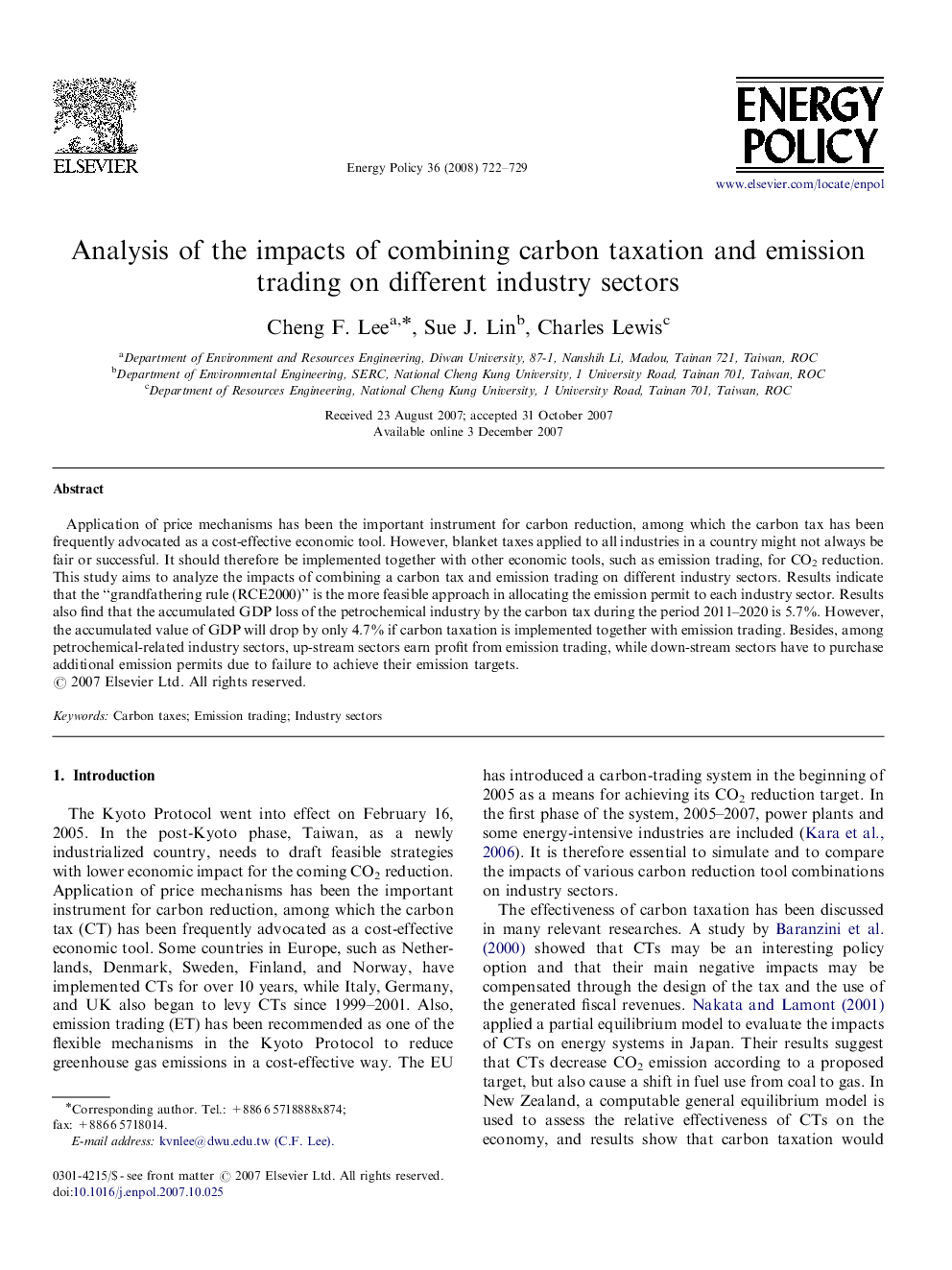| Article ID | Journal | Published Year | Pages | File Type |
|---|---|---|---|---|
| 994255 | Energy Policy | 2008 | 8 Pages |
Application of price mechanisms has been the important instrument for carbon reduction, among which the carbon tax has been frequently advocated as a cost-effective economic tool. However, blanket taxes applied to all industries in a country might not always be fair or successful. It should therefore be implemented together with other economic tools, such as emission trading, for CO2 reduction. This study aims to analyze the impacts of combining a carbon tax and emission trading on different industry sectors. Results indicate that the “grandfathering rule (RCE2000)” is the more feasible approach in allocating the emission permit to each industry sector. Results also find that the accumulated GDP loss of the petrochemical industry by the carbon tax during the period 2011–2020 is 5.7%. However, the accumulated value of GDP will drop by only 4.7% if carbon taxation is implemented together with emission trading. Besides, among petrochemical-related industry sectors, up-stream sectors earn profit from emission trading, while down-stream sectors have to purchase additional emission permits due to failure to achieve their emission targets.
